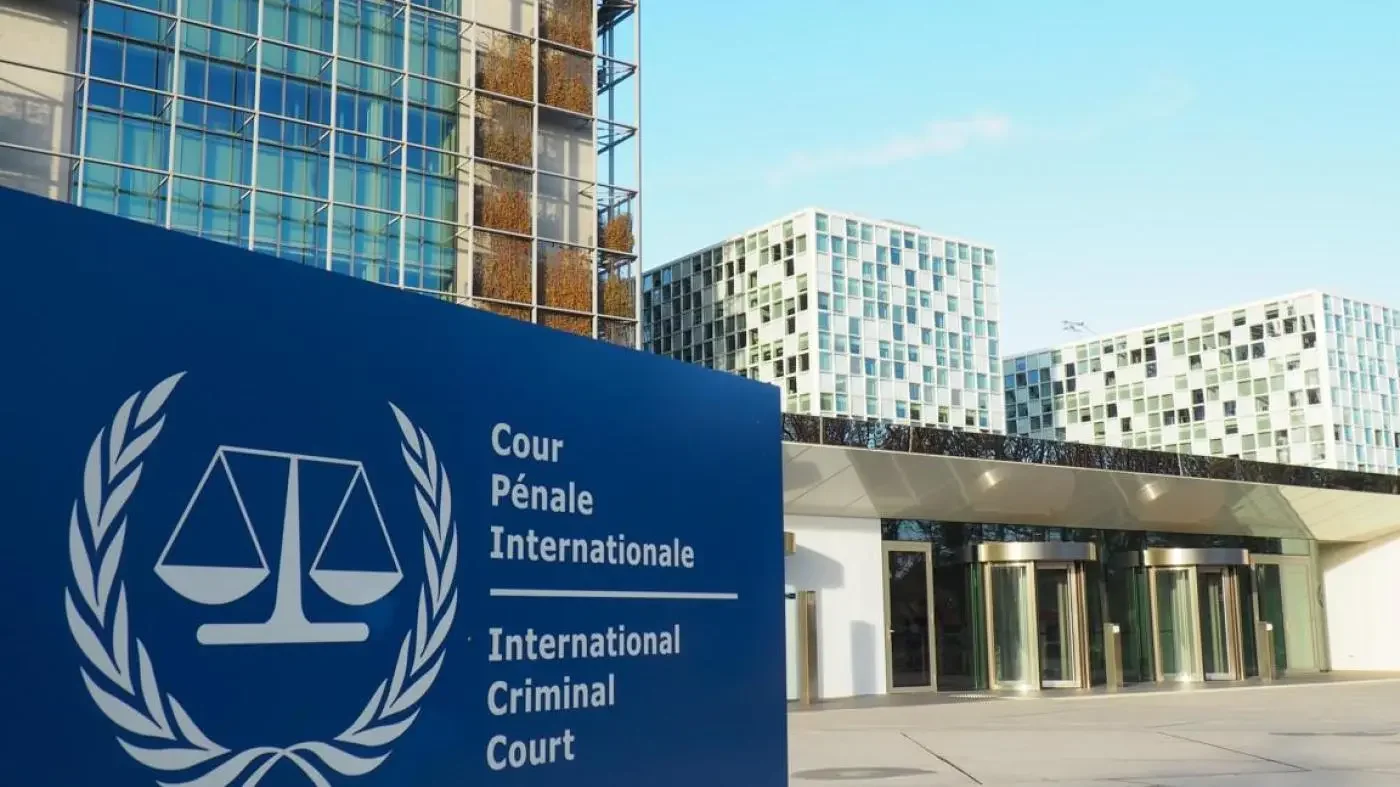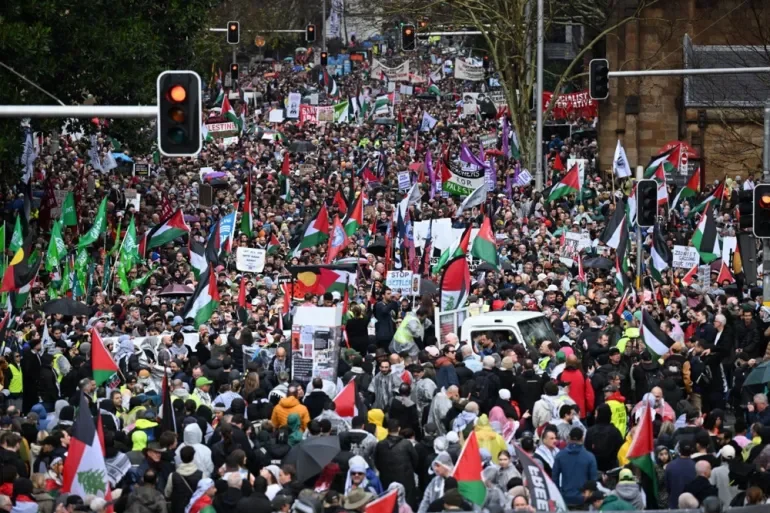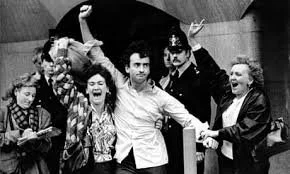In 19th-century Ireland, for the tenth time in a hundred years, the yearly potato crop failed across the island. The humble potato, the staple of the the ‘poor person’s food’, was lifted out of the ground and became black mush in the hand.
The Irish were an indigenous land-based, pre-Christian people. Historically, the land had been under the full control of the Irish and they distributed the produce of the land, meat, fish, vegetables, communally among the tribes in accordance with Brehon Law. But when the colonial English stole the land from the natives, they made them ‘tenant farmers’, meaning a small portion of land was rented back to them so that they could feed their families.
There had been potato crop failures before, and when they happened, the other foods had been distributed to the poor and people survived. But in 1845, all of the other food was shipped out of the country under armed guard to England as “taxes”, while the Irish people starved. Dying by starvation is a slow, painful, disorienting death. Emaciated people were dying on the sides of the roads with grass-stained mouths.
“Dying by starvation is a slow, painful, disorienting death. Emaciated people were dying on the sides of the roads with grass-stained mouths.”
Over the next seven years, as the potato crop failed each year, and all of the other foods were shipped to England, nearly a million people died, and another million fled the country in ‘coffin ships’ bound for America and elsewhere.
While the potato crop played a role in the deaths, it was not a natural disaster that caused the suffering. Instead, it was a political decision to prioritise the will of the oppressor in the region over the lives of the dispossessed Irish. At the time, the starvation of the Irish was “rationalised” by the English. Now it is seen as a preventable, man-made crisis scorched into Irish identity, deserving of shame on the English.
International Law
In the 1800’s, there was no international law to protect a people from wilful starvation by another. Had international law existed then, petitions could have been made to the International Criminal Court (ICC) and the English could have been held to account for their actions and the decimation of the population of Ireland could have been prevented.
Today, Article 54 of Additional Protocol I to the Geneva Conventions and Article 8(2)(b)(xxv) of the Rome Statute, make the deliberate use of starvation of a people, as a method of warfare, a war crime, punishable by up to 30 years or life imprisonment, plus possible fines, forfeitures, and orders to provide reparations to victims.
“Petitions could have been made to the International Criminal Court and the English could have been held to account for their actions and the decimation of the population of Ireland could have been prevented.”
International law matters. Whether through the statutes or customary international law, all countries remain accountable for genocide, torture, and inhumane treatment. But what happens when a powerful player doesn’t want to be held to account? What if they want to play by their own rules and defy international law? In the past, they often got away with it. But as more and more ordinary people stand up to injustice, this is creating a polarisation between those with power and those without. Western leaders, in particular, are indifferent to Israel starving Gaza with impunity. But the outrage over the human rights abuses in the region is drawing more and more criticism from the world’s population. This difference is likely to be the stress test that will break the old model of ‘power-over’ and begin the inversion of power structures globally.
A Stark Divide
On one side, a bloc of states and institutions prioritises strategic alliances and political insulation over universal enforcement of humanitarian law. On the other, a growing transnational public rejects that, insisting that the prohibition on starvation, like the prohibitions on torture and genocide, is not subject to political exception.
“Thousands of pro-Palestinian protestors have taken to the streets around the world, calling for an end to the war.”
This stark divide in opinion between elite or government positions and the public around the world over what is happening in Gaza is clear. In the United States, for example, only 32% of the general public approves of Israel’s military actions, with Republican leaders largely supporting Israel and disapproval especially high among Democrats and independents. Between October 7, 2023, and June 7, 2024, the Crowd Counting Consortium recorded nearly 12,400 pro-Palestinian protests.
In the United Kingdom, 300,000 people protested in London against the war in Gaza, with 58% of the public viewing Israel’s response as disproportionate, yet the government maintains a stance of Israel’s right to “self-defence”.
Since October 2023, Europe has witnessed a vast wave of pro-Palestinian mobilisation. EPAL documented approximately 30,000 protest events across 619 cities by mid-January 2025. Among the largest gatherings, Rome drew up to 300,000 marchers in early June 2025; the Red Line demonstrations in The Hague saw up to 150,000 on 15 June and 100,000 on 18 May; Brussels recorded 75,000–110,000 participants; national protests in Spain (September 2024) and France (November 2023) reached 150,000 and 60,000, respectively. Additional large-scale rallies in capitals like London, Berlin, and Bern contributed tens of thousands more. Collectively, these figures point to well over one million individual protester-days across Europe during this period. In Rome, police used tear gas and water cannons to disperse demonstrators, indicating the scale and intensity of the protests. European public sentiment increasingly favours Palestinians, but the EU leaders generally uphold diplomatic alliances with Israel.
“Australian demonstrators participated in the "March for Humanity" across Sydney's Harbour Bridge, with organisers estimating up to 300,000 participants, the largest march to date there.”
In the Middle East and North Africa, 85% support Gaza, but political elites often moderate their statements to balance public opinion with geopolitical interests. Similar patterns appear in Asia and Africa.
In Australia, on August 3, 2025, tens of thousands of demonstrators participated in the "March for Humanity" across Sydney's Harbour Bridge, with organisers estimating up to 300,000 participants, the largest march to date there. Despite growing public alarm at the situation in Gaza, the Australian government has avoided actions such as cutting military aid or publicly condemning Israeli military operations.
This global divergence reflects factors such as strategic alliances, partisan politics, media framing, and access to non-biased information, highlighting the tension between grassroots ethical concerns and elite-driven foreign policy. The more the world’s population knows about what is going on in Gaza, the more outraged public opinion around the world becomes.
For the most part, those with wealth and power do not want change in Gaza, they want Israel to continue with impunity, but those without power, populations around the world, are outraged and want the nightmare to end. So, what can we do?
How Activism Creates Change
In the past, if you were an inconvenience to the elite, you were ‘disappeared’ or fabricated charges were brought against you, or the spotlight of attention was brought to bear eking out discrepancies in your affairs that could be weaponised against you.
More recently, injustices have been challenged and occasionally gained public attention and that pressure was brought to bear on the powers that be to reverse decisions. When ordinary people learn the truth about the injustices done “in their name” and with their tax dollars, euro and pounds, the outrage becomes activism. And activism is one of the most powerful agents for change in the world.
“In the 1980’s, huge miscarriages of justice against the Irish were meted out in English courts. They were exonerated and released, after serving decades in jail for crimes they did not commit.”
— Image is of Gerry Conlon, after being released from jail.
In the 1980’s, for instance, huge miscarriages of justice against the Irish were meted out in English courts, such as with the ‘Birmingham Six’, the ‘Guildford Four’ and the ‘Maguire Seven’. All were exonerated and released, after serving decades in English jails for crimes they did not commit.
The Guildford Four were exonerated and released in 1989, after documents were discovered, including those showing that information about an alibi for Gerry Conlon (one of the Four) had not been shared with the defence lawyers, and that detention sheets and confessions had been falsified in Guildford police station. All four served 15 years in British jails. The Birmingham Six were exonerated and released in 1991 after the Court of Appeal overturned their convictions based on new evidence, unreliable forensic testing, and evidence of police misconduct. They each served 16 years. The Maguire Family of seven, the youngest of whom was 14 years old at his arrest, were exonerated in 1991, after their cases were found to have involved unreliable forensic testing and police misconduct. They each served between four and 10 years.
In each case, the convictions were overturned because of activism. These miscarriages of justice were not overturned simply because the courts “discovered” new evidence on their own. Instead, it was the result of sustained public pressure, campaigning, and investigative journalism that forced the legal system to re-examine the cases.
“Prominent lawyers, Michael Mansfield QC, Gareth Peirce and Alastair Logan joined the campaigns, working relentlessly on appeals.”
— Image is of Lawyer, Gareth Pierce, who worked on many cases of social justice.
Family members campaigned tirelessly, writing letters, speaking at events, and building support networks, refusing to let the cases fade into obscurity, keeping them alive in public debate for over a decade. Prominent lawyers, Michael Mansfield QC, Gareth Peirce and Alastair Logan joined the campaigns, working relentlessly on appeals. Politicians such as Jeremy Corbyn, Chris Mullin (MP and journalist), and human rights groups amplified the cause. Investigative journalism and documentaries revealed police misconduct, unreliable forensics, and suppressed evidence, helping to educate and shift public opinion away from seeing the prisoners as “terrorists” to victims of injustice. Public demonstrations, protests, vigils, and rallies took place in Britain, Ireland, and internationally. Campaign groups like the Irish in Britain Representation Group (IBRG) and civil liberties organisations highlighted the racist and anti-Irish prejudice behind the convictions. Political pressure and a changing political climate meant that by the late 1980s, growing evidence of wrongful convictions in multiple IRA-related cases created a pattern that became impossible to ignore in a democracy. Combined with pressure from campaigners, this led to parliamentary debates, questions in the House of Commons, and eventually official reviews.
“The mass mobilisations, the alliances between communities once isolated, leveraging cross-community support, recognise that it is when we come together that can we change the world.”
Without activism, these cases would have remained closed. The British justice system was reluctant to admit error; appeals were rejected multiple times. It was only because activists kept the cases in the spotlight, and because public confidence in the system was eroding because of growing awareness, that the courts finally overturned the convictions. Years of grassroots persistence, media exposure, and political pressure made continued inaction untenable.
‘Ally-Ship’
In “ally-ship”, those with no direct personal stake in the injustice stand with those most affected. Ally-ship in the Gaza protests is visible as in multiple justice movements, such as Black Lives Matter, LGBT+, disability rights movements, etc. The mass mobilisations, the alliances between communities once isolated, leveraging cross-community support, recognise that it is when we come together that can we change the world.
These are all early signals of a shift in the locus of power. The old system was organised around a hierarchical pyramid, in which the many were organised to serve the few. When this hierarchy of power is challenged, as with the protestors, whether they march for Gaza, for Indigenous sovereignty, or for racial justice, it allows for a profound inversion of the power imbalance.
Today’s protestors are positioning themselves on the right side of history. History will not remember the lawyers’ caveats, the ministers’ tactical hesitations, or the diplomatic euphemisms. It will remember who acted to uphold the rule of law when it was most under threat and who ignored it to protect their own.








